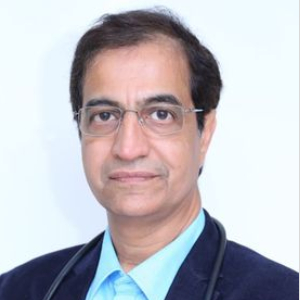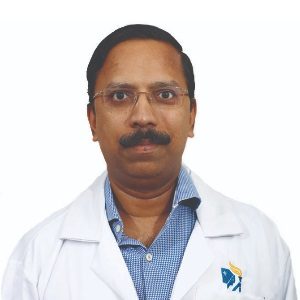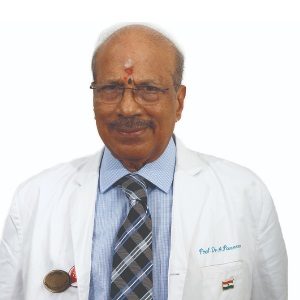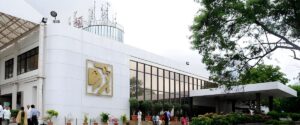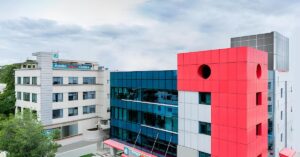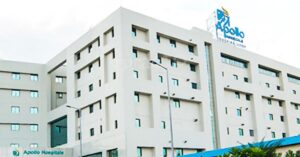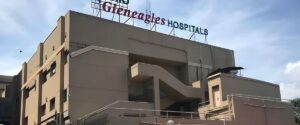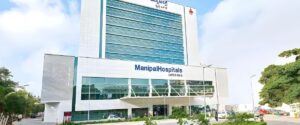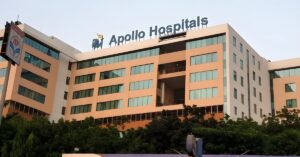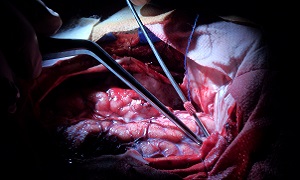Best Doctors in India for Hemispherectomy
- Stroke Specialist & Neurologist, Mumbai, India
- Over 30 years’ experience
- Gleneagles Global Hospital Parel Mumbai
Profile Highlights:
- Dr. Shirish M Hastak is one of the best Stroke Specialists in India with a specialization in Neurology.
- Dr. Hastak underwent training in stroke management under world-renowned neuroscientist, Dr. Vladimir Hachinski at the Western University of Canada.
- He holds more than 30 years of experience as a neurologist among which he has spent 2 decades mastering stroke management.
- Neurologist, Chennai, India
- Over 33 years’ experience
- Apollo Hospitals Greams Road
Profile Highlights:
- Dr. Arulselvan V L is one of the finest Neurologists in India, with an overall experience of nearly 33 years.
- Dr. Arulselvan was bestowed with an Excellence Award for aptitude in Anatomy in his academics.
- He takes a holistic approach to treating conditions like Myelitis, Encephalitis, Meningitis, Cerebral or Brain Aneurysm, PSR, PBC, Brain Tumor Surgery, and Sleep Disorders and performs different therapies.
- He has a periodical ‘JIAN’ under his name.
- Neurologist, Chennai, India
- Over 34 years’ experience
- Apollo Hospitals Greams Road
Profile Highlights:
- Dr. Panneer A is one of the most renowned Neurologists in India with over 34 years of research and clinical experience in the field.
- Dr. Panneer A has great expertise in Migraine treatment and neurological disorders management.
Best Hospitals in India for Hemispherectomy
- City: New Delhi, India
Hospital Highlights:
- Equipped with 650 beds, BLK-Max Super Speciality Hospital is the largest stand-alone private sector hospital in Delhi.
- With over 1500 healthcare providers and 150 globally renowned super specialists, the hospital is one of Asia’s largest BMT Centres. The hospital is known for having some of the best cancer doctors in the country.
- The hospital is NABH and NABL accredited and was inaugurated by the first Prime Minister of India. Pt. Jawahar Lal Nehru.
- City: Hyderabad, India
Hospital Highlights:
- Located in the vibrant city of Hyderabad, Apollo Health City is a world-renowned medical facility that provides outstanding care and treatment to patients coming from different parts of the world.
- Founded in 1988, this 550-bed multispecialty hospital with 50 specialties and 12 Centres of Excellence continues to deliver outstanding outcomes for patients with the simplest to the most complicated medical conditions.
- Backed by the latest medical equipment and a dedicated team of professionals, the hospital provides comprehensive treatment across various specialties including, cardiology, critical care, neurosciences, cancer, orthopedics, gynecology, ENT, transplants, gastroenterology, etc.
- Apollo Health City is a cutting-edge healthcare facility that combines various facilities under one roof. These may include state-of-the-art physical medicine, rehabilitation, and wellness services with education, research, telemedicine, innovative medical devices, disease management programmes, and medical talents.
- The hospital is known for offering top-notch cancer treatment accompanied by cutting-edge facilities and technology.
- The hospital also offers a broad spectrum of cosmetic procedures that improve not just appearance but also comfort.
- In 2011, Apollo Health City was the recipient of the Asian Hospital Management Award (AHMA).
- In 2013, the Government of India recognized Apollo Health City as the top medical tourism destination in the country.
- City: Mumbai, India
Hospital Highlights:
- Kokilaben Dhirubhai Ambani Hospital, Named after the wife of Indian industrialist Dhirubhai Ambani, the founder of Reliance Industries, this is one of the top hospitals in Mumbai. This 750-bed multi-specialty hospital became operational in 2009. Known as one of India’s most advanced tertiary care facilities, the hospital is designed to raise India’s global standing as a healthcare hub, with an emphasis on excellence in clinical services.
- Kokilaben Dhirubhai Ambani Hospital uses Protocol and Care Pathway based treatment models to ensure the best outcomes for patients.
- The hospital represents a confluence of top-notch talent, cutting-edge technology, state-of-the-art infrastructure, and, most importantly commitment.
- The hospital also holds the accreditation of the NABH, NABL, CAP, and JCI.
- The hospital has been recognized as the No. 1 Multispecialty Hospital in Mumbai and the West Zone for the fifth year in a row in 2020 by The Week.
- City: Chennai, India
Hospital Highlights:
- Apollo Cancer Centre in Teynampet, Chennai is one of the best super speciality hospitals in India. It is the country’s first ISO-certified healthcare facility.
- Additionally, it is the first hospital in Chennai and the first oncology hospital in India to receive NABH accreditation.
- The hospital provides advanced tertiary care in oncology, orthopedics, neurology and neurosurgery, head and neck surgery, and reconstructive and plastic surgery.
- Additionally, it offers specialized healthcare of international standards with results comparable to those of the best hospitals in the world.
- It is outfitted with 300 beds, the newest and greatest technology, a large pool of highly qualified specialists, and a committed team of medical and paramedical professionals.
- It is one of the first few medical facilities in India to offer comprehensive cancer care. A team of skilled medical, surgical, and radiation oncologists makes up the Tumour Board, which is a component of the complete treatment planning system. After reviewing reported cases, the Board determines in concert with diagnostic specialists what course of action is best for each individual patient. The panel is further supported by dieticians, medical counselors, speech therapists, and other pertinent specialists.
- The hospital launched the first ExcelsiusGPS® Spine Robot in South India and has completed over 50 surgeries till date.
- It is also one of the few cancer hospitals in India to offer Cyber Knife therapy. Till now it has completed 1320 Cyber Knife therapies.
- The institution is also one of the few in India with the capacity to do transplants and find a prospective unrelated donor. The hospital has performed over 1000 BMTs till now.
- Furthermore, it has an exceptional milestone of performing exultant Micro vascular free tissue transfer and Aesthetic surgeries on more than 1000 patients with success.
- City: Chennai, India
Hospital Highlights:
- Apollo Hospitals, Chennai, is one of the best hospitals for heart care in India. Over the years, Apollo has expanded all over India, as a healthcare chain.
- India’s first ‘Only Pancreas’ transplant was performed in Apollo Hospital. The hospital is known for successfully performing Asia’s first en-bloc combined heart and liver transplant, and over the years, it has attained a remarkable achievement in the global healthcare space. Around 3-4 organ transplants are performed in the hospital per day.
- Equipped with over 500 beds, this hospital in Chennai was established in 1983 and since then has been among the most preferred hospital for patients from all over the world.
- The hospital holds accreditation of the NABH and JCI and is the first hospital in India to be ISO 9001 and ISO 14001 certified. It is also the first South Indian Hospital to receive subsequent reaccreditation from the JCI USA 4 times.
- City: Chennai, India
Hospital Highlights:
- Established in 1999, Gleneagles Global Hospital, Chennai, is one of the top healthcare facilities in Southern India. It is part of the Gleneagles Hospital Chain, which is the fourth largest healthcare chain in the country. The hospital specializes in multi-organ transplants of kidneys, liver, lungs, heart, etc.
- The hospital has an excellent infrastructure and state-of-the-art lab and equipment set-up. The hospital boasts cutting-edge technologies, a highly skilled team of doctors and surgeons, and trained support staff. Located in Perumbakam, Chennai, it is one of India’s premier health care destinations. The hospital has performed some of the most complex surgical and clinical procedures in India including multi-organ transplantations.
- The hospital’s lung transplantation program is one of the best in the country. The hospital is known for having performed India’s first single lung transplant and first minimal invasive lung transplant. It is also the only Indian hospital to be associated with King’s College Hospital, London, United Kingdom for liver transplantations.
- City: Hyderabad, India
Hospital Highlights:
- KIMS Hospital (a brand name of Krishna Institute of Medical Sciences) is one of the largest and best multi-speciality hospitals in Hyderabad. The hospital provides various treatments to an enormous number of patients.
- The hospital has a capacity of more than 3000 beds. KIMS Hospitals offers different healthcare services in more than 25 specialities and super specialities.
- The hospital is equipped with modern medical equipment and technology. It has robotic equipment to provide minimal invasive techniques for patients.
- The hospital is aimed at providing world-class healthcare facilities and services at an affordable cost for patients.
- The various specialities and departments of the hospital include neurosciences, gastroenterology & hepatology, robotic science, reproductive sciences, dental science, oncological sciences, organ transplantation, heart and lung transplantation and mother and child care.
- City: Kolkata, India
Hospital Highlights:
- Established in 2003, Apollo Gleneagles Hospitals is a 750-bed multispecialty tertiary care hospital situated in Kolkata.
- With 33 Centres of Excellence and more than 50 specialties, Apollo Gleneagles Hospitals, Kolkata is capable of handling all sorts of patients.
- This tertiary care hospital, which is a 100% subsidiary of Apollo Hospitals Enterprise Ltd., India, is regarded as one of Kolkata’s top hospitals.
- The facility is a complete blend of cutting-edge technology, state-of-the-art infrastructure, and genuine hospitality.
- Focusing on numerous specialties, the hospital provides all-inclusive medical treatments supported by cutting-edge technology and a staff of highly qualified medical specialists.
- Patients across the globe come to Apollo Gleneagles Hospitals Kolkata for their treatment. Moreover, international patients receive full attention and assistance for their treatment and are provided with a hassle free experience.
- Apollo Gleneagles Hospitals, Kolkata is the only hospital in Eastern India to hold the Joint Commission International (JCI) certificate.
- It is also the only hospital in Kolkata to hold the NABL accreditation in six different categories, which includes Clinical Biochemistry, Clinical Pathology, Hematology & Immunohematology, Microbiology & Serology, and Histopathology & Cytopathology.
- Furthermore, Apollo Gleneagles Hospitals, Kolkata is known for performing the first ever Reverse Shoulder Prosthesis Replacement in East India.
- City: Bengaluru, India
Hospital Highlights:
- Established in 1991, Manipal Hospital, Old Airport Road, Bangalore is the flagship facility of the Manipal Hospitals Group, which is one of the largest networks of Multispecialty Private Hospitals in India.
- The facility is well-known for its state-of-the-art technology, performance-driven, patient-centric, and evidence-based approach.
- The facilities offered at Manipal Hospital meet the highest international standards, allowing the hospital to attract a large number of national and international patients.
- Their expertise encompasses the diagnosis and treatment of a wide range of diseases in several specializations that address both simple as well as complex medical procedures.
- There are total 600 beds accessible in the hospital for the in-patients so they may heal while being closely watched after by the medical team. In addition, it has 144 critical care units, including NICUs, ICCUs, and ICUs. Apart from that, the hospital also offers 20 contemporary, modular state-of-the-art operating rooms with all the amenities needed.
- The hospital has several departments that are overseen by highly skilled, certified, and experienced medical experts.
- One of the best departments in the hospital is that of the Cancer department which is known for its advanced cancer diagnosis and treatment facilities such as Intracavitary Chemotherapy, Biological Therapy, HIPEC, PIPEC, Nuclear Medicine, Radiation Therapy, etc.
- It is one of the few hospitals in Bangalore that provides full range of pediatric services, including pediatric emergency services, pediatric gastroenterology, pediatric neurology, pediatric cardiology, pediatric orthopaedics, pediatric allergies, pediatric immunology, and infectious diseases.
- Furthermore, Manipal Hospital, Old Airport Road, Bangalore is also regarded as one of the best hospitals for bone and spine related disorders.
- City: Mumbai, India
Hospital Highlights:
- Established in 2016, Apollo Hospitals, Navi Mumbai is one of Maharashtra’s most advanced multispecialty hospital. This 500-bed hospital provides sophisticated treatments and integrated super specialty services under one roof.
- The hospital features a cutting-edge infrastructure that houses 13 state-of-the-art operating rooms, advanced laboratory and medical diagnostics, and 120 ultra-modern I.C.U. beds, including N.I.C.U. and P.I.C.U., monitored round the clock by critical care specialists.
- With 57 specialties and subspecialties, the hospital boasts a team of renowned medical specialists who offer accurate diagnosis and treatment with easy accessibility to their patients.
- Additionally, the hospital offers highly customized, individualized health check programs that are made to fit each person’s needs in terms of lifestyle.
- Apollo Hospitals, Navi Mumbai has been accredited by both the National Accreditation Board for Hospitals and Healthcare Providers (NABH) and the Joint Commission International (JCI).
- Apollo Hospitals Navi Mumbai has been awarded the “Best Practices-International Services Award” at the annual awards for service excellence and operations excellence.
Hemispherectomy
Hemispherectomy is a surgical treatment for epilepsy. In this procedure, one of the two cerebral hemispheres, which make up the majority of the human brain, is removed. There are generally many surgical procedures which can fall under the broad category of hemispherectomy.
The main goal of each procedure is to completely stop seizures by disconnecting one cerebral hemisphere from the other completely. This can prevent seizures from spreading to any other parts of the brain.
Purpose
This surgery is considered when epilepsy cannot be controlled easily by medications. Removing an entire hemisphere of the brain is generally considered an effective treatment, as the removed hemisphere is generally quite damaged by the effects of seizures. In addition, the other brain has already assumed many of the functions of the damaged side. The brain has many redundant systems, allowing healthy regions to make up for the loss of a damaged side.
Children can also be candidates for this procedure; children who usually show significant impairments due to their epilepsy, which can include partial or complete loss of sensation, partial or complete paralysis, or complete loss of sensation on the side of the body opposite to the affected brain region.
Preparation
To be considered a candidate for this procedure, first, you will need to undergo various tests, which can include electroencephalography, in which electrodes are placed on the scalp, on the surface of the brain, or within the brain to record electrical activity. This test helps in locating the focal points of the seizure activity.
Several neuroimaging procedures are also used for obtaining images of the brain, as these can help to reveal structural abnormalities that the neurosurgeon must be aware of. These procedures may include computed tomography (CT) scans, magnetic resonance imaging (MRI), x rays, or positron emission tomography (PET) imaging.
Neuropsychological tests might be done for providing a baseline against which the results of the surgery can be measured. A Wada test may be performed as well. In this test, a drug is injected into the artery putting one half of the brain to sleep. This can help the neurologist to determine where in the brain the language and other functions are localized. This might also be useful for predicting the result of the surgery.
Procedure
Hemispherectomy can be ‘anatomical’ or ‘functional’. In an anatomical hemispherectomy, a hemisphere is removed completely, while in a functional hemispherectomy, some of the tissues are left in place. However, its connection to the other brain is cut so that it is no longer able to function. Anatomic hemispherectomy is also of several types, which are designed to minimize complications.
Generally, most surgical centers prefer to perform functional hemispherectomy. First, the doctor will put you into sleep with general anesthesia.
The doctor will next make a cut in your scalp, after which a piece of bone from your skull will be taken out. He/she will move aside part of the dura, a tough membrane covering your brain. Then your doctor will take out parts of the hemisphere where your seizures start. Generally, it is the temporal lobe.
Finally, your doctor will cut the corpus callosum so the hemispheres of your brain are not able to send signals to each other anymore. This way, if there is a seizure in the hemisphere that doesn’t work properly, it will not spread to the healthy one. This will allow the healthy hemisphere to continue to develop in a proper way without the danger of damage by seizures.
Once the surgery is finished, your doctor will be putting the dura and bone back, and then close up the wound with stitches or staples.
Aftercare & recovery
You will be in intensive care for a day or two. Then you will spend a few days in a regular hospital room. The stitches or staples should come out around two weeks after the surgery.
You might experience some side effects in the first few weeks, though these should usually go away within a short time.
- Headaches
- Trouble concentrating
- Trouble finding the right words
- Forgetfulness
- Feeling tired
- Nausea
- Numbness in the scalp
- Feeling depressed
- Puffy eyes
- Muscle weakness on one side of your body
Generally, you should be able to resume your daily activities within 6 to 8 weeks after the surgery. It is likely that you will need to keep taking your seizure medication for at least 2 years, even if you don’t have any seizures. Your doctor will let you know when you need to lower the dose or stop taking it completely.
Risks
Like most major surgeries, there is a risk of infection, bleeding, or allergic reaction to the anesthesia.
Other problems that might occur include:
- Loss of feeling or movement on the opposite side of your body
- Loss of visual field
- Fluid on your brain which can require a second procedure, such as a VP shunt
In around 70-85 percent of patients, seizures are eliminated. In around 10-20 percent of patients, it is reduced by 80 percent. Patients who suffer from Rasmussen disease, which is progressive, might not receive many benefits, though medications can be reduced and there might be some improvement in intellectual function.
Death is also a possibility, though it is known to occur in only 1-2 percent of patients, who undergo hemispherectomy.

